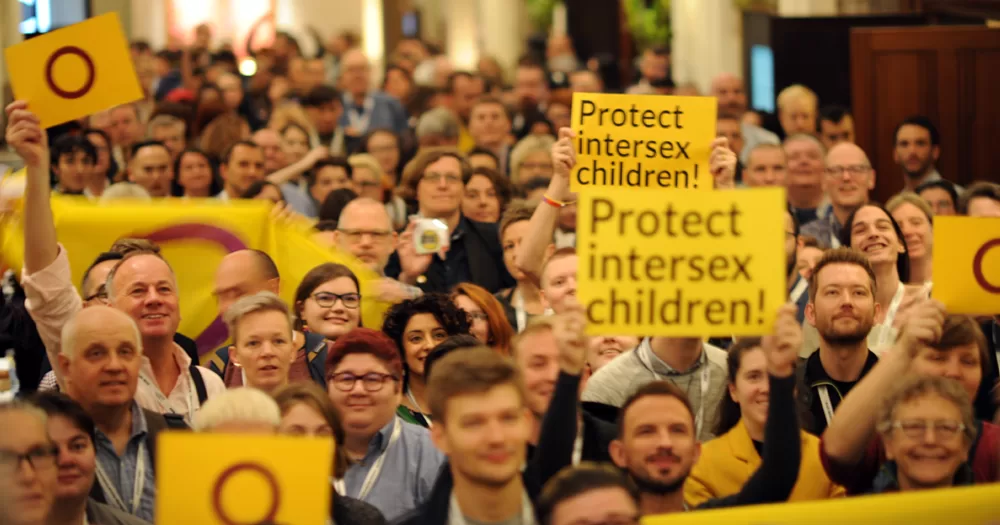In what has been hailed as a “watershed moment”, the Council of Europe has unanimously adopted the Recommendation on Equal Rights for Intersex Persons. The document provides comprehensive guidance for member states to protect intersex people and prevent violations of their human rights.
Adopted on October 7, the Recommendation marks a historic milestone for equality, dignity, and human rights of intersex people across Europe. As the first comprehensive international legal instrument specifically dedicated to the rights of intersex persons, the Recommendation provides clear guidance to governments in establishing laws and policies for the protection of this community.
Among the recommendations included in the document are laws to prohibit non-consensual medical interventions and ensure that any such interventions are postponed until the individual can give informed consent. Moreover, it recommends providing equitable access to healthcare, as well as policies to prevent violence, discrimination and exclusion of intersex persons across all areas of life.
While not legally binding, the implementation of the Recommendation by member states will be closely monitored by the Committee of Ministers. This means that states will be expected to demonstrate they are taking action to align their legislation with the recommended measures.
The Recommendation has been welcomed by international LGBTQ+ groups Organisation Intersex International Europe (OII Europe) and ILGA-Europe, which called its adoption a “watershed moment”.
“As the first comprehensive international human rights instrument dedicated to the protection of persons with variations of sex characteristics, the Recommendation marks a historic and much-needed milestone,” said Dan Christian Ghattas, Executive Director of OII Europe.
“It powerfully highlights the significant gaps in rights protections that intersex individuals continue to face and provides clear guidance to States on how to address them. We urge States to act without delay to fully implement the Recommendation and uphold the human rights of all intersex persons.”
Ghattas’ words were echoed by Magda Rakita, Co-chair of the OII Europe Board, who said: “We are delighted that the long-awaited Recommendation has been adopted.
“The importance of such a comprehensive set of measures cannot be overstated, as it sends an important message of hope to intersex persons across Europe that Member States must and will work to ensure that their fundamental rights are upheld.”
The Recommendation is set to be officially launched on October 27 at an event in Strasbourg, which will also be broadcast online. The event will mark the start of the #EuropeGoesPurple campaign, a joint initiative of the Council of Europe and OII Europe aimed at raising public awareness, visibility and political momentum for intersex equality across Europe.
Did you know we have a team of wonderful runners taking part in this year’s Dublin Marathon and raising funds for GCN? You can support our athletes at this link.
© 2025 GCN (Gay Community News). All rights reserved.
Support GCN
GCN is a free, vital resource for Ireland’s LGBTQ+ community since 1988.
GCN is a trading name of National LGBT Federation CLG, a registered charity - Charity Number: 20034580.
GCN relies on the generous support of the community and allies to sustain the crucial work that we do. Producing GCN is costly, and, in an industry which has been hugely impacted by rising costs, we need your support to help sustain and grow this vital resource.
Supporting GCN for as little as €1.99 per month will help us continue our work as Ireland’s free, independent LGBTQ+ media.
